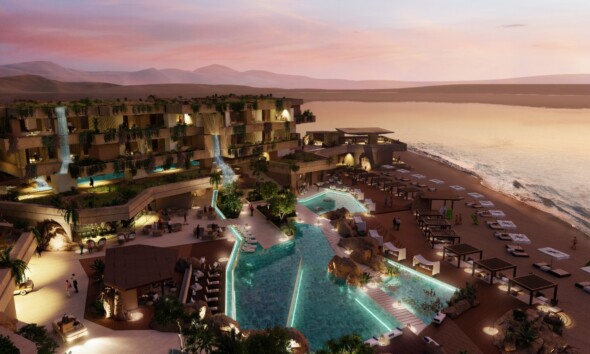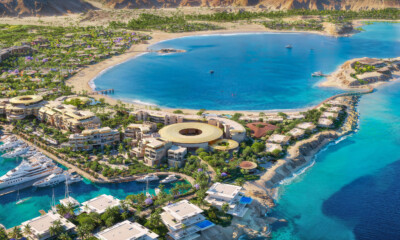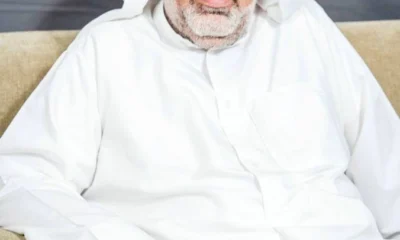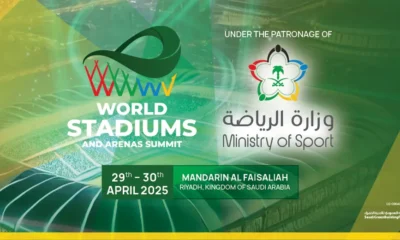Home » Business » Prince Mohammed bin Salman is Reshaping KSA’s Economic and Cultural Identity with Vision 2030
Business
Prince Mohammed bin Salman is Reshaping KSA’s Economic and Cultural Identity with Vision 2030
Published
2 years agoon
By
Huda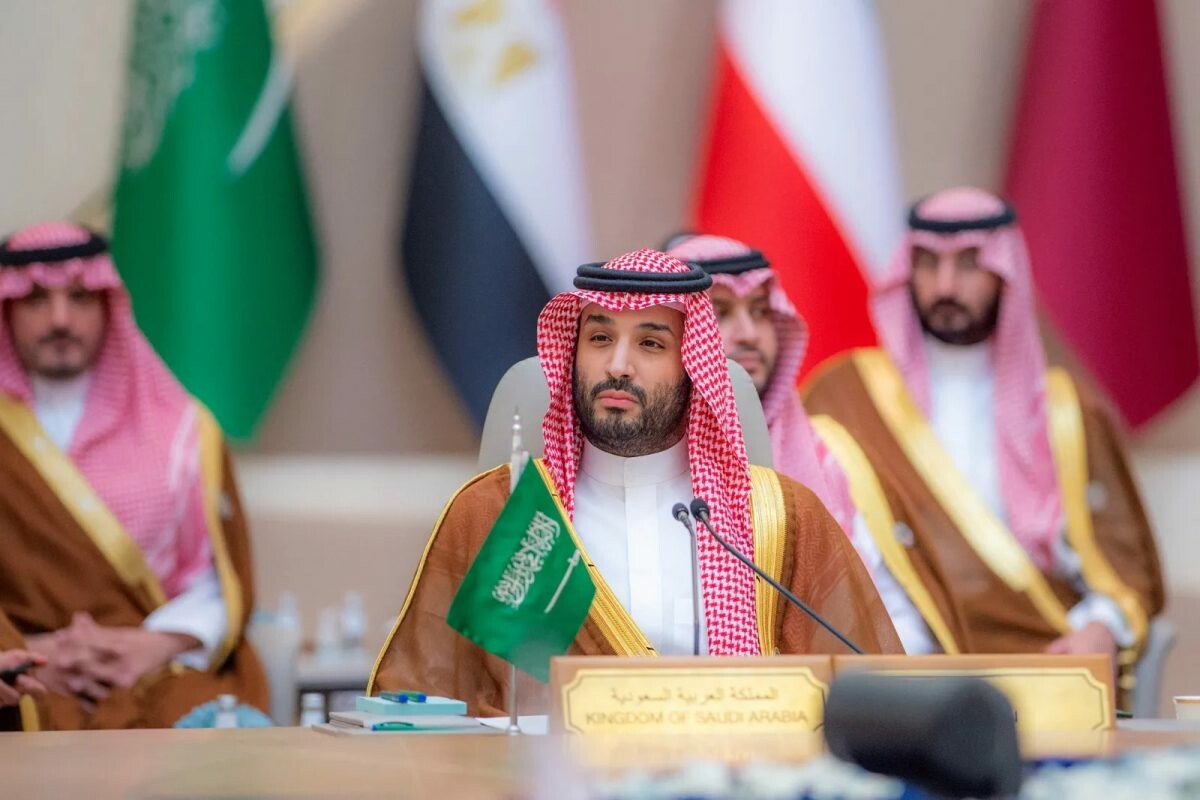
Crown Prince Mohammed bin Salman bin Abdulaziz, chair of the Council of Economic and Development Affairs, commits to Saudi Arabia’s global development.
Saudi Arabia’s Vision 2030 strategy, launched seven years ago, aimed to become a global leader in development. King Salman bin Abdulaziz Al Saud, the Custodian of the Two Holy Mosques, envisioned this as a driving goal to guide his country towards a prosperous future.
As a prominent Saudi youth ambassador, he has pledged to compete regionally and internationally in politics, economics, society, and culture, demonstrating his belief in the country’s potential for success.
By: Mohsen Hasan
The vision, launched by Crown Prince Mohammed bin Salman, has achieved amazing results in the first half of the plan, surprising both local and international onlookers. His relentless desire has powered these accomplishments and tools.
The Vision 2030 plan aims to achieve Saudi Arabia’s goals by implementing success factors for growth, overcoming challenges, and reaping benefits. This comprehensive approach represents Saudi Arabia as an oil-rich, prosperous nation in all sectors, with resilience to unforeseen difficulties and crises, regardless of whether oil is present.
Prince Mohammed bin Salman’s Vision 2030 strategy is based on three key factors that have fueled his success, demonstrating his influence, decisiveness, and change-making abilities, leading to his numerous accomplishments.
The Prince Mohammed bin Salman has effectively utilised these factors to drive change and achieve the vision’s objectives by giving his undivided attention as follows:
- Firstly, the Kingdom holds spiritual significance and symbolic value for over a billion Muslims worldwide, rooted in its Islamic identity, status as the Custodian of two holy mosques, and its position as the holiest place on earth. Its Arab identity places it at the forefront of the Arab world, focusing on various forums, issues, and events.
- Secondly, Saudi Arabia’s Vision 2030 plan is based on its robust investment capabilities, ranking 16th globally in the Global Investment Capability Index in 2021. The country’s Public Investment Fund (PIF), one of the world’s largest sovereign wealth funds, has over $400 billion in assets and seems to exceed $2 trillion by 2030 for resource optimisation and economic prosperity.
- Thirdly, the country’s strategic location offers numerous advantages, including serving as a central hub connecting Asia, Africa, and Europe via major waterways, a vital centre for trade and investment in the Middle East, and a vital source of infrastructure for international trade and transportation sectors. It also facilitates mutual trade with emerging markets in South Asia and Africa.
Vision 2030, from its inception on April 25, 2016, has been driven by inspiring reasons and pillars, prompting reflection on its progress and the challenges it still faces. This analysis looks at the immediate and long-term effects on the Saudi economy as well as the unique qualities of Prince Mohammed bin Salman as a regional, Arab, and global leader.
Saudi Arabia is undergoing significant transformations to achieve its Vision 2030 pillars of a vibrant society, a thriving economy, and an ambitious homeland. Despite challenges in appreciating the Kingdom’s strengths, the vision aims to highlight notable characteristics, adjustments, and remarkable transformations that have shaped it, setting it up for a bright present and hopeful future.
Economic Liberalisation
For years, the Saudi economy has suffered the overwhelming dominance of oil revenues over its components and sources. The spectre of dwindling oil reserves and their eventual depletion loomed large, posing a threat to multiple levels in the country. Hence, one of the primary objectives of Vision 2030 was to liberate the Saudi economy from the shackles of oil revenues.
The Kingdom has taken remarkable and exceptional strides towards this goal through the pillar of a thriving economy. The contribution of non-oil revenues to the total economic revenues has surged from around 27% in 2015 to nearly 43% in 2021, with an average annual increase of 18%. In the same year, non-oil exports grew by 37% compared to 2020, valuing around 275 billion riyals.
Meanwhile, re-export operations also witnessed a parallel growth of 23%, with a value exceeding 40 billion riyals. To sustain this trajectory, the localisation of national industries across all sectors was encouraged to reach a 50% non-oil export share of total non-oil GDP by 2030.
In 2019, the Kingdom issued the “Local Content and Small and Medium Enterprises (SMEs) Purchasing Preference Regulations” for over 319 items, resulting in over 1,100 local enterprises participating in the “Made in Saudi Arabia” campaign, with over 4,500 products manufactured.
Likewise, the Saudi Exports Development Authority launched more than 200 projects in more than 70 countries as part of its strategy to export Saudi products to the world. In 2021, non-oil activities recorded a positive growth of 6.1% compared to 2020.
Diverse Resources
The Kingdom of Saudi Arabia actively pursues economic diversification in all sectors by investing in its numerous resources. To that end, the country has developed the Mining Investment System, which has resulted in the issuance of approximately 580 quarry licenses and 165 mining exploration licenses in 2021 alone.
The Oil and Gas Technology Localization and Transfer initiative has increased the local content share in this sector’s productivity to 60%. By the end of 2021, the number of enterprises engaged in development, investment assistance, and technology transfer in the military industries sector will have climbed to more than 140.
The National Strategy for Transport and Logistics Services intends to transform the Kingdom into a worldwide logistics hub, boosting the sector’s GDP contribution from 6% to 10%. The creation of the Middle East’s largest logistics area at Jeddah Islamic Port, with investments of 500 million Saudi riyals from Maersk and an additional 370 million riyals for the construction of grain silos at Jazan and Ras Al-Khair ports, demonstrate the Kingdom’s commitment.
The maritime transport sector in the Kingdom has advanced significantly, with three Saudi ports ranking among the top 100 in the world and a score of 70,097 points in the Maritime Navigation Network Connectivity Index, indicating regional leadership.
Private Partnership
Saudi Arabia’s ambitious Vision 2030 acknowledges the private sector’s critical role in accelerating advancement. As a result, the government has achieved substantial progress in attracting and supporting partnerships with small, medium, and micro firms to increase their contribution to GDP. For example, the Agricultural Development Fund has allocated a generous SAR 3.7 billion to fund private-sector projects that improve the country’s food security.
Furthermore, in 2021, the government invested SAR 2.055 billion in Saudi start-ups, with a particular emphasis on financial technology and e-commerce. The Saudi Exports and Imports Bank has also increased its support by offering SAR 10 billion in loans to enterprises exporting Saudi domestic products to over 50 countries worldwide.
The government has established the Cultural Development Fund and the Small and Medium Enterprises Bank, which have exceeded 660,000 by the end of 2021. These initiatives have fostered an ideal environment for entrepreneurship, leading Saudi Arabia to be ranked first globally in responding to the COVID-19 pandemic among entrepreneurs and rising to seventh place in the entrepreneurship status index. The country has also witnessed significant advancements in financial technology tools, with 18 fintech start-ups that had emerged by the end of 2021.
Besides, two local digital banks have been authorised. To support large companies, the Partner Programme was launched, pouring an astonishing SAR 5 trillion into the economy to boost their contribution to GDP to 65%. This ambitious initiative has allocated resources to seventeen varied industries, supporting the national economy and enhancing its competitiveness.
High-Return Investment
Saudi Arabia has prioritised streamlining domestic and international investment activities to meet its Vision 2030 economic goals. The government has carefully considered the investment sector, disclosing hitherto unknown sectors and resources to domestic and foreign investors.
The national investment policy of Prince Mohammed bin Salman has played a critical role in facilitating investment practices and licensing procedures for individuals and businesses. With three simple steps, any investor can now obtain investment licenses from within or outside the Kingdom, marking a significant milestone for the country’s investment landscape.
In 2021, the Ministry of Investment issued around 4,440 licenses, marking a 250% increase in the issuance of such licenses compared to prior years. These promising figures have been made possible by the Ministry’s efforts to provide streamlined and efficient investment procedures, which have been well-received by both local and foreign investors.
As a result, the real value of foreign investment in Saudi Arabia increased to an all-time high of $13.8 billion in the second quarter of 2021. This is a revenue gain of 607.3% and an annual increase of 1573.9%.
Especially noteworthy is that foreign investment flows have surpassed original estimates, coming in at SAR 70 billion, or 2.3% of national revenue, as opposed to the expected SAR 42 billion, or 1.5% of GDP.
These figures demonstrate the efficiency of the national investment plan in achieving the Vision 2030 objectives, which aim to position Saudi Arabia as the 15th largest economy in the world, with a GDP of SAR 6.4 trillion.
In conclusion, the Saudi Arabian government’s dedication to enhancing investment processes and drawing in international and local capital has resulted in notable growth in the nation’s investing landscape, making it a desirable location for businesses and supporting the goals of Vision 2030.
Care and Services
Within the “Vibrant Society” pillar, the social care and public services sectors in the Kingdom of Saudi Arabia have seen substantial qualitative changes. These changes addressed numerous shortcomings and answered a slew of challenges, resulting in lower waste and depletion indications as well as increased protection and preventative measures.
In the housing sector, Saudi citizens’ percentage of homeownership has increased from 47% to 60% within the first five years of the 2030 strategy. The waiting time for Saudi citizens to get housing assistance has been reduced from 15 years to immediate support and entitlement with no delay.
In the healthcare sector, there has been a significant increase in specialised medical consultations offered within four weeks, from 50% before the launch of the strategy to 80% by 2020. The proportion of emergency healthcare services delivered within four hours has likewise grown from 36% to 87%.
In addition, the rate of road fatalities per 100,000 people has dropped from 28.8 to 13.5. The positive impact of these upgrades and services on the Saudi community is shown in an increase in the percentage of citizens participating in weekly sporting activities from 13% to 19%. The number of entertainment venues in the Kingdom has also expanded dramatically, from 154 to 277.
Moreover, the number of Saudi national heritage sites open to the public has grown from 241 to 354. These advancements have boosted the happiness index among inhabitants, with the Kingdom moving up from 37th to 21st place in the World Happiness Report.
The social care system has also prioritised human capital development through the “Human Capacity Development” programme.
The program’s goals are to create a robust and flexible educational structure for everyone, to educate a workforce for the local and global labour markets, and to give long-term learning possibilities.
Sustainable Environment
Saudi Arabia’s ambitious 2030 vision has been aligned with global efforts to preserve and sustain the environment. The planners and implementers have effectively adapted global sustainability goals to serve the Saudi environment, economy, investment, and tourism while revitalising the land’s and people’s rich legacy and traditions.
To safeguard the country’s flora and fauna, the Kingdom has established seven royal reserves, occupying over 13% of its land area. In addition, five specialised environmental sustainability centres, including the National Waste Management Centre and the National Environmental Compliance Monitoring Centre, have been established. The formation of the Saudi Environmental Fund has also contributed to the Kingdom’s environmental sector’s financial viability.
Saudi Arabia has achieved considerable gains in lowering damaging carbon dioxide emissions by 28 million tonnes per year and growing green areas by 37 million square metres through a variety of environmental measures. This has not only contributed to the Kingdom’s standing as the world’s leading producer of desalinated water, generating 5.9 million cubic metres per day in 2020, but has also helped to offset the economic losses caused by sandstorms, which surpassed 12 billion dollars in the Middle East region.
Thanks to 513 stations measuring rainfall rates and monitoring groundwater levels, the Kingdom has enhanced aquaculture production while decreasing agricultural water consumption. The Special Environmental Security Forces have been developed to ensure the monitoring, commitment, and knowledge of sustainable environmental standards.
These programmes have contributed not only to environmental preservation and sustainability but also to the growth of the Kingdom’s economy, investment, and tourism sectors. The success of these initiatives is a credit to the 2030 vision’s planners and implementers, who have exhibited a thorough awareness of global sustainability goals as well as a strong dedication to servicing Saudi Arabia’s unique environment and cultural heritage.
A Border Crossing Card
Saudi Arabia’s Vision 2030 seeks to highlight the country’s rich cultural and historical history, reflecting Crown Prince Mohammed bin Salman’s aspirations. The Ministry of Culture emerged in 2018 to foster this, and since then, over 10 cultural bodies have developed, each contributing to economic growth in the industry. The Museum Authority, Visual Arts Authority, Film Authority, Theatre and Performing Arts Authority, Heritage Authority, Literature and Publishing Authority, and Translation Authority are a few examples.
The Kingdom of Saudi Arabia is a cultural powerhouse, preserving its rich heritage and embracing diverse expressions. The Ministry has added six sites to UNESCO’s list of cultural landmarks, including the Ḥimā Cultural Area near Najran. By 2020, 1,000 national heritage sites will be accessible to the public, up from 400 in 2016, with over 30,000 archaeological sites in Al-Ula Province.
Al-Diriyah, the Arab Culture Capital for 2030, has significantly contributed to economic growth through its cultural sector. In 2021, a music industry strategy aimed to increase GDP contribution to 1% and create over 60,000 jobs. Additionally, UNESCO’s list of Intangible Cultural Heritage now includes Arabic calligraphy, and more than 30 historic mosques have been repaired.
A strategy for the development of the music industry evolved in late 2021 to increase its GDP contribution to 1% and create over 60,000 employment possibilities. Al-Diriyah received the title of the Arab Culture Capital for 2030, demonstrating the important contribution of the cultural sector to economic growth. UNESCO has renovated over 30 old mosques and added Arabic calligraphy to its Representative List of Intangible Cultural Heritage.
The Kingdom of Saudi Arabia has become a cultural beacon, showcasing its rich heritage and diverse cultural expressions, a testament to its collaborative efforts and visionary leadership, resulting in a new period of cultural growth and development.
Deterrent Force
Saudi Arabia’s ambitious Vision 2030 initiative is driving the Kingdom’s military independence and global deterrence efforts to unprecedented heights. As part of this vision, Saudi Arabia is systematically enhancing its local industries, particularly its defence sectors. This includes the recent establishment of the Defence Development Authority, the restructuring of the Ministry of Defence, and the creation of the Saudi Arabian Military Industries (SAMI).
Saudi Arabia is heavily investing in high-quality military sectors such as defence electronics, guided missiles, weaponry, Unmanned Aerial Vehicles (UAVs), and cyber warfare technology to reach 50% localisation by 2030 and beyond. The Kingdom also prioritises developing human competencies in maintenance and repair, producing over 70,000 direct and indirect job opportunities.
The International Defence Exhibition and Conference (IDEX 2021) highlighted the Kingdom’s significant achievements in the military manufacturing sector. According to the Saudi Arabian Military Industries General Authority, contracts and licences for military production issued to more than 90 businesses have contributed more than SAR 7 billion to the national economy.
The localisation of military industries in the Kingdom will boost the economy and lower unemployment while laying the groundwork for Riyadh’s eventual military independence. These measures showcase Saudi Arabia’s continuous commitment to improving its military capabilities and meeting its high-level goals. With its deliberate and committed approach, Saudi Arabia has a strong position for advancement as a major force in the global military industry.
The Future of Vision 2030
Saudi Arabia’s Vision 2030 is making significant advancements towards attaining its broad economic, social, and strategic objectives. Thanks to a strong commitment to economic diversification and social empowerment, the Kingdom is well-suited to become a key player in the global economy.
The non-oil economy has contributed more than 58%, with revenues rising from SAR 166 billion in 2015 to about SAR 370 billion in 2020, a 220% increase. The participation of marginalised social groups, such as working women, has increased significantly, with their workforce participation exceeding the targeted 30% and rising to over 35%.
The Saudi tourism industry has seen a spectacular recovery, attracting over 7 million tourists and visitors, a 50% rise over prior years. Tourists may now receive electronic tourist visas in minutes, and the entertainment industry has generated over 1,300 businesses and tens of thousands of jobs.
The Saudi stock market has also made major progress, joining the MSCI Emerging Markets Index and a comparable Standard & Poor’s Dow Jones index, drawing international investments and nearly tripling the value of foreign-owned stocks. In addition, the Kingdom has received good rankings in the Minority Investor Protection Index and the Global Competitiveness Report.
Overall, Saudi Arabia’s Vision 2030 initiative is positioning the Kingdom among major liberated and open economies, with a strong commitment to economic diversification, social empowerment, and global competitiveness.
The Man of Transformation
Prince Mohammed bin Salman, a skilled statesman, has navigated modern challenges in the Kingdom through ambition, clear vision, and appropriate instruments. His political dynamic has significantly impacted the Kingdom’s diplomatic relations with international nations. Moreover, his efforts aim to build, promote, and protect achievements while avoiding mistakes and fixing flaws, making his country a respected and meritorious nation.
Prince Mohammed bin Salman is driving Saudi Arabia’s transition to wealth through Vision 2030, transforming the country from an oil-dependent to a diverse, liberated economy. His efforts have attracted power and resilience by seizing opportunities in local and global markets, defying tradition and convention.
Prince Mohammed bin Salman, despite facing political pressures and media criticism, remains unwavering in his pursuit of progress and prosperity for his people. His accomplishment in breaking the stereotyped image of the Kingdom, which many equate to “desert and camels,” is crucial to his success.
The Kingdom is thriving in regional and global issues, with a vibrant cultural, artistic, and sports scene and a unique tourism industry. Its emphasis on a clean, green environment and resilient infrastructure demonstrates its forward-thinking attitude.
Furthermore, The Kingdom has established a commercial, investment, and financial climate that helps the richest people and companies in the world, promoting profitable alliances for both parties. The strong leadership style, which is present in Saudi Arabia as well as all Arab and Islamic countries worldwide, belongs to this achievement.
Vision 2030 is a pivotal moment for the Arab and Islamic worlds as it marks a significant shift in the Kingdom of Saudi Arabia’s economic, social, and living prosperity. This shift seems to propel the region to unprecedented heights, setting a new standard for a better future for all.
Read more: AlUla Conference for Emerging Market Economies’ Main Features
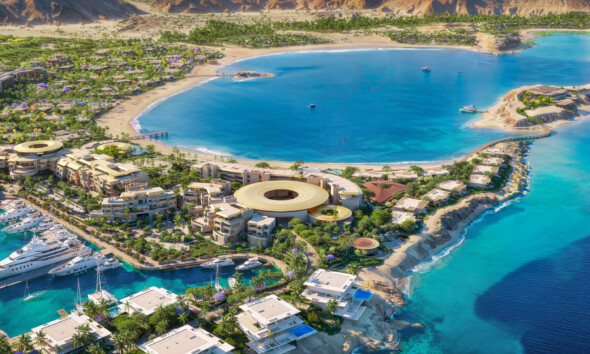
Nammos Resort AMAALA: KSA’s New Address for International Luxury Hospitality
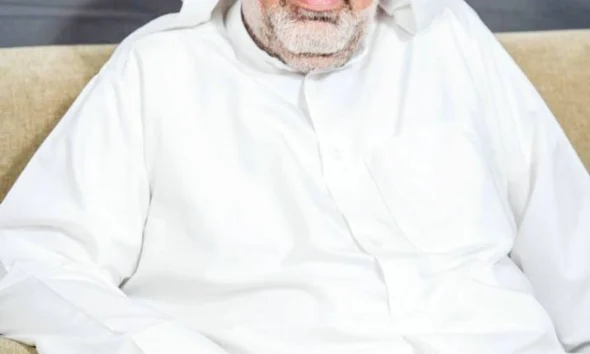
Muhammad Mahfouz: Trump will Respond to Riyadh’s Ambitions, and We Must Develop a Gulf-Arab Project with Iran
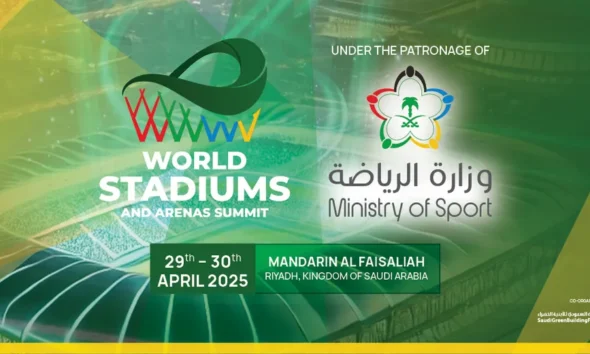
The World Stadiums & Arenas Summit 2025 has Arabisk London – Saudi Arabia as a Media Partner
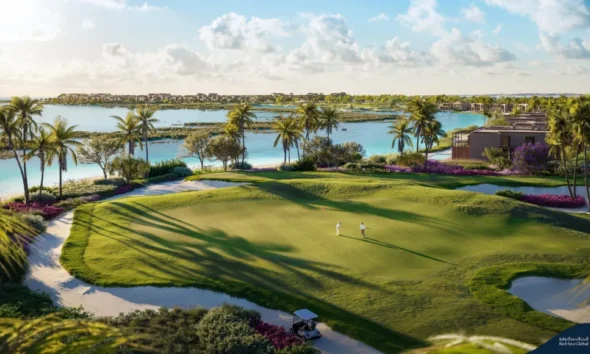
Laheq: The First Private Saudi Island to Obtain Light at Last
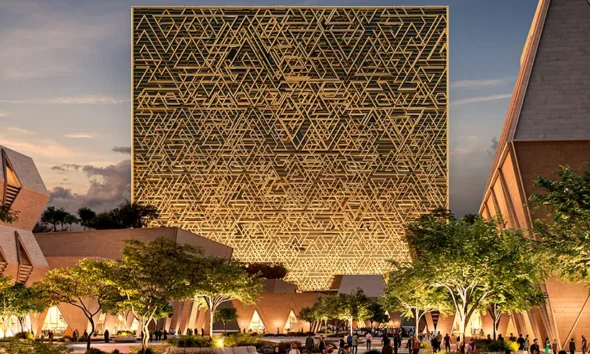
The “New Square” Alters the Modern Life’s Notion in Riyadh
